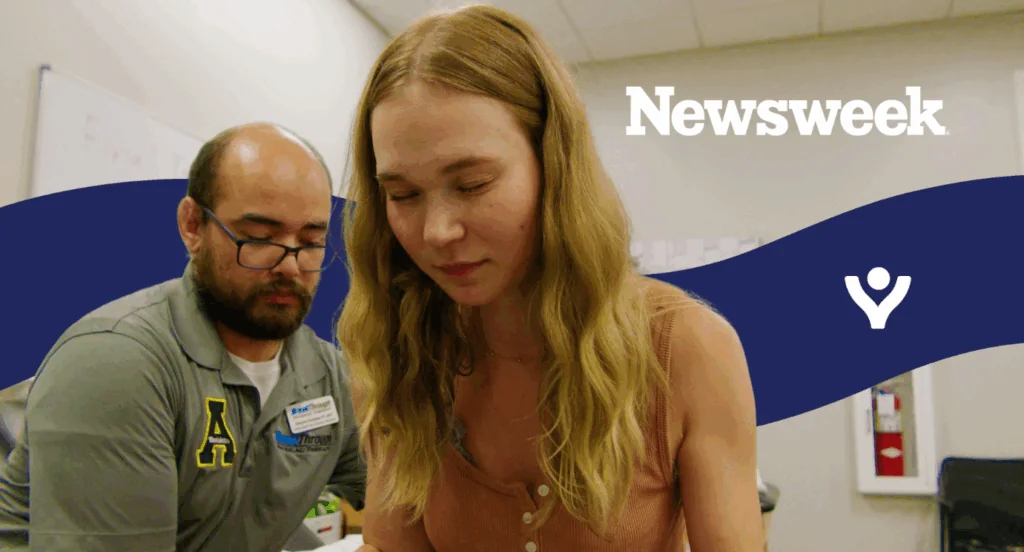This week’s Newsweek feature, “Chronic Pain Science Has Advanced. Why Are Treatments Stuck in the Past?”, marks a significant milestone for the musculoskeletal (MSK) industry and a powerful validation of the work being done.
Chronic pain now affects nearly 1 in 4 U.S. adults, and while the science behind pain has progressed dramatically, the healthcare system’s approach to treating it remains fragmented, transactional, and outdated. Newsweek’s in-depth article underscores that disconnect and positions Confluent Health as one of the organizations working to close the gap.
We are proud to see three of our clinical leaders, Dr. Adriaan Louw, Dr. Colleen Louw, and Dr. Stephen Clark, featured in this national piece. Their insights reinforce a message we’ve long championed: to effectively treat chronic pain, we must move beyond pills and procedures toward evidence-based, patient-centered, interdisciplinary care.
“There has indeed been a pain revolution… a huge one,” said Dr. Adriaan Louw. “But we still have a lot of yuckiness in the medical world.”
As Newsweek outlines, the science has caught up with the complexity of chronic pain, but care models and payment systems have not. Traditional interventions, such as imaging, prescriptions, or surgery, continue to dominate treatment plans despite a growing body of evidence supporting integrative approaches like physical therapy, movement science, and behavioral health.
Dr. Stephen Clark, Chief Clinical Officer at Confluent Health, emphasized the importance of understanding the whole person: “Our healthcare system is transactional and often considers people in short time frames. What we are doing is relational over long periods of time.”
The article also highlights the critical role trust plays in the therapeutic process.
“Any clinician can start talking to your patient about pain,” said Dr. Colleen Louw. “But if you don’t listen and establish trust and therapeutic alliance, you’re not going to get anywhere with them.”
At Confluent Health, this relational approach isn’t theoretical, it’s operational. We’ve embedded pain neuroscience education into our care model across more than 620 clinics nationwide, training thousands of clinicians to address chronic pain through a biopsychosocial lens and not just a procedural one.
Chronic pain is a silent epidemic with rising costs and few scalable solutions. At Confluent Health, we are not only delivering better outcomes, we’re shaping the future of pain care.
It’s time to rewire how pain is understood, managed, and treated in America.


